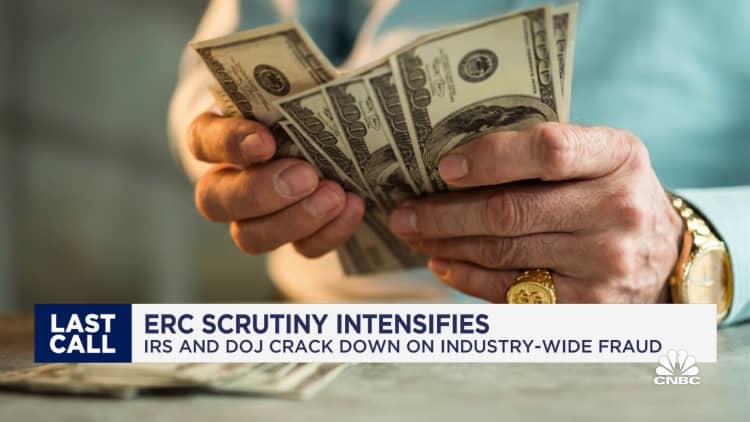SHAREShare Article via FacebookShare Article via TwitterShare Article via LinkedInShare Article via Email

The government program, seemingly flush with cash, led to the emergence of an industry of its own, which focused on helping businesses claim the credits. Suddenly, a parade of ads encouraging businesses to apply for the credit were everywhere. Companies promised fast approvals and made statements claiming many businesses qualify for the Employee Retention Credit, or ERC. Some of the companies also took large percentages of the awarded refunds for their services.
Demand for the aid surged, as businesses deemed eligible for the credit could claim up to $26,000 per employee by submitting amended tax returns for years in which their operations were affected by Covid-19.
In September, the Internal Revenue Service, the agency that processes these credits, put a moratorium on new applications until 2024. The agency cited “questionable claims″ and “fraud” concerns across the entire industry. IRS Commissioner Danny Werfel said the ERC program was not meant to become a “gravy train” for companies that promote and profit from the refund. The IRS has not named individual promotion companies or consultants.
Innovation Refunds — a consulting firm that focuses on the ERC — was one of the most visible advertisers during the tax credit’s heyday. CNBC spoke to 20 former employees and contractors at varying levels of the company, many of whom requested to remain anonymous due to fears of retaliation.
From many of those interviews, a picture emerged of a company focused on “aggressive” growth and sales of the product that some called “bullying” or “hound”[ing] of small businesses, up against a “shot clock” to cash in on the ERC. But others spoke well of both their time at the company and its practices, saying it complied with guidelines and helped small businesses access needed capital.